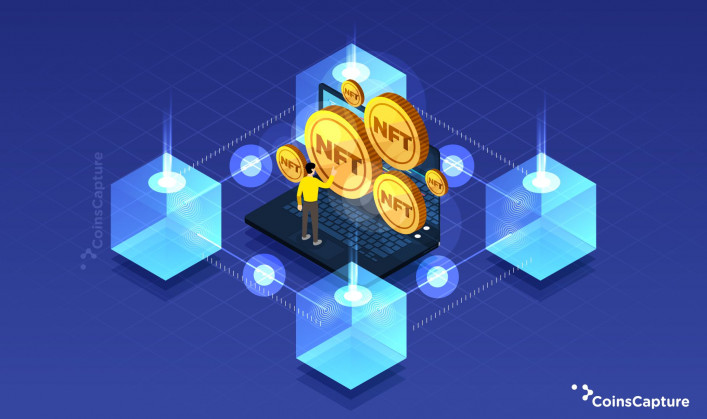7 November 2025
5 Most Popular NFT Staking Platforms
Along with NFT markets, NFT Staking Platforms are in high demand, and they serve as the foundation for a range of NFT-based services. The process of Staking an NFT is very similar to regular crypto staking. You commit your NFT asset to the staking protocol in NFT Staking, securing it for a predetermined period. Your NFT is then inactive, which means you can't sell or exchange it, so it generates earnings, generally in the form of the platform's native currency.
NFT staking offers a new way for collectors to profit to earn from their NFT collections. It has become the new way to make a passive income in the Crypto world. NFT HODLers invest in Decentralized Finance (DeFi) systems. DeFi applies the decentralized concept of blockchain to the realm of money. They create venues to get rewards without selling or giving up access to their collections.
How to Stake NFTs?
While NFT Staking is still in its early stages, several very interesting utilization are being developed in the Crypto Metaverse. To begin staking NFTs, select a platform depending on your interests, learn how it works, link your MetaMask wallet, and get started. You will require some ETH tokens to operate the system, convert the native currency, and carry out tasks in most circumstances.
Best NFT Staking Platforms
1. Splinterlands
Splinterlands is a blockchain-based collectible card game identical to Hearthstone, in which players acquire and utilize cards with varying powers and statistics. Splinterlands (SPS) is the game's native token organized as a DAO on the Binance Smart Chain (BSC). SPS tokens can be used in ranked fights, liquidity pools, and the DAO governance voting pool.
2. Only1
It is claimed to be the first Solana-based Social NFT platform. Consider "OnlyFans" with a decentralized NFT twist, as Only1 refers to it as "SocialFi." Creators may generate exclusive material on the platform, such as posts, photographs, videos, etc. That content is transformed into an NFT, which fans can bid on to become the owners. Other admirers may then unlock the material with the platform's $LIKE token, and both the NFT owner and the original creator are compensated in $LIKE tokens. After that, $LIKE tokens can be staked on the platform.
3. NFTX
On the NFTX platform, users may generate ERC20 tokens supported by NFT collectibles. Users can deposit NFTs into the NFTX vault to produce an ERC20 exchangeable token that is composable and fungible at a ratio of 1:1. These vTokens, on the other hand, may be used to acquire NFTs from a vault or staked for yield rewards. Holders of vTokens can also pool their holdings at Automated Market Makers (AMMs), allowing others to trade on an active market.
4. WhenStaking
The ability to stake NFTs with Onessus' WhenStaking platform is a much-anticipated feature. The platform allows users to stake several in-game NFTs and its native token $VOID. There are still several limits to the platform, such as just Onessus blockchain staking, but if you are prepared to lock in a long time with a rare NFT, there is a very appealing APY of above 80%.
5. BAND NFTs
An NFT marks a new age in the music industry, in which creators have complete control over the distribution of their works. BAND - The creators are driving this change. On the other hand, the market allows users to acquire music NFTs and stake them in royalty pools to obtain a part of the income produced by their songs or albums. The amount of NFT's music collection will rise as the royalty income stream for investors strengthens.
The Bottomline
The NFT realm is rapidly expanding in unison with the Metaverse. A number of projects worth hundreds of millions of dollars are planned and several individual NFTs are worth millions of dollars. Through staking, NFT holders will be able to create a dividend and profit on their NFT holdings. Depending on your platform of choice, you can earn APY or get additional NFTs by staking your NFTs. Receiving tokens in return for staked NFTs is another option to liquidate them.
Disclaimer - The author’s thoughts and comments are solely for educational reasons and informative purposes only. They do not represent financial, investment, or other advice.






